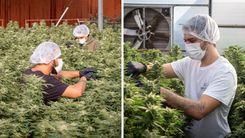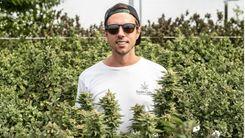Court recognizes ancestral knowledge as proof of patient's ability to cultivate and extract cannabis oil
RF-2 grants safe conduct to indigenous leader, understanding that cultivation is part of his identity, spirituality, and indigenous medicine
Published on 07/24/2025

"The petitioner is a shaman, healer, and spiritual leader of an indigenous community, being qualified for the cultivation and extraction of cannabis oil," the Court understood. Image: Canva Pro
The Federal Regional Court of the 2nd Region (TRF-2) granted safe conduct for an indigenous spiritual leader, diagnosed with anxiety disorder, to cultivate medicinal cannabis at his residence for his own treatment, in the state of Rio de Janeiro.
The indigenous individual, who acts as a shaman, healer, and guardian of traditional knowledge, will be able to import up to 177 seeds per year and cultivate 148 plants destined for the artisanal production of therapeutic cannabis oil.
Cultural heritage as proof
According to the Court, ancestral knowledge is sufficient to prove the patient's ability to cultivate and extract cannabis oil, as the practice is part of his identity, spirituality, and indigenous medicine.
"The petitioner is a shaman, healer, and spiritual leader of an indigenous community, being qualified for the cultivation and extraction of cannabis oil," states the decision.
Therefore, the TRF-2 attributes legal value to traditional knowledge, recognizing it as a legitimate form of knowledge and qualification, equivalent to the formal technical training required in other cases of authorization for self-cultivation.

According to lawyer Juliana Amorim, who is responsible for the shaman's defense, the decision represents an important milestone. "What this decision signals is that the Law is finally beginning to look beyond its own walls and to recognize the legitimacy of knowledge that has always existed but was ignored by the formal system," she says.
Juliana also emphasizes that the decision goes beyond symbolic recognition. "It forces the legal world to admit that a diploma is not the only valid source of knowledge. By doing so, the decision not only promotes dialogue, but also qualifies it, making it more symmetrical and respectful," she adds.
Artisanal cultivation is not trafficking
The sentence also highlights that artisanal cannabis cultivation does not constitute drug trafficking, as it is exclusively intended for personal and therapeutic use. The lack of regulation by the National Health Surveillance Agency (Anvisa) for domestic cannabis cultivation was pointed out as an obstacle to the fundamental right to health.
According to Juliana, the sentence could influence future judicial decisions. "Certainly, the potential to set precedents is immense and, in my view, inevitable. It serves as a guide for other judges and courts, showing that it is possible to make decisions that are both humanitarian, constitutionally grounded, and culturally sensitive," she concludes.








